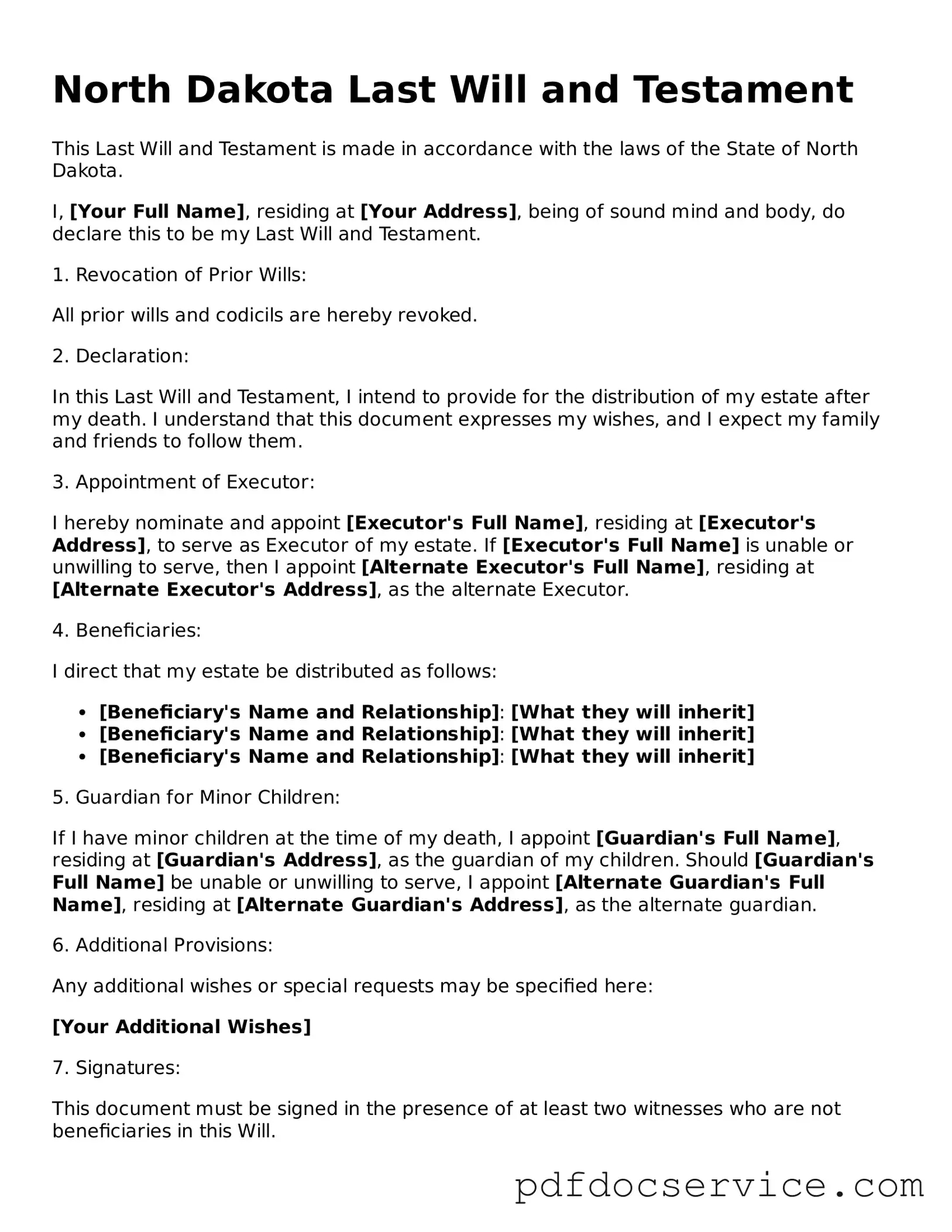Printable Last Will and Testament Template for North Dakota
The North Dakota Last Will and Testament form is a legal document that allows individuals to outline their wishes regarding the distribution of their assets after death. This form serves as a crucial tool for ensuring that one's estate is handled according to personal preferences. Understanding its components and requirements is essential for effective estate planning in North Dakota.
Open Last Will and Testament Editor

Printable Last Will and Testament Template for North Dakota
Open Last Will and Testament Editor

Open Last Will and Testament Editor
or
Get Last Will and Testament PDF
Finish the form now and be done
Finish Last Will and Testament online using simple edit, save, and download steps.